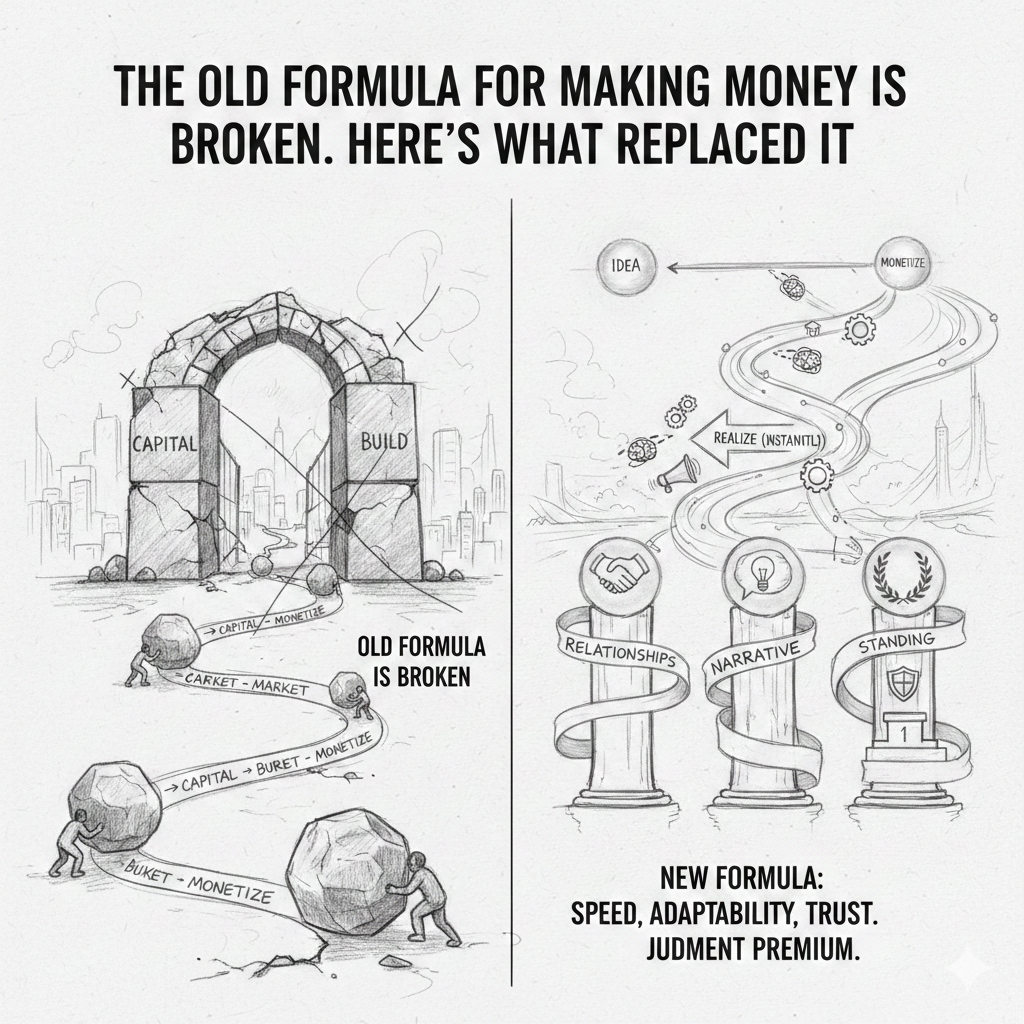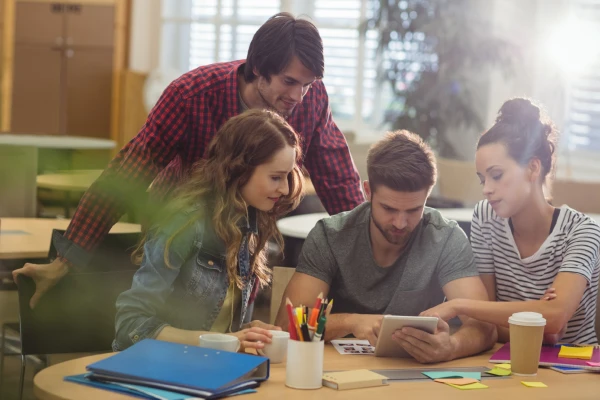Q: So what does your role at Object Edge entail?
A: I’m the Co-CEO and COO. I’ve worked on the tech side of things, but for the past decade-plus, my focus has been on running the company.
Q: How has your professional life changed in 2020? Did it also impact your day-to-day?
A: 2020, what a year! In 2019, our team got together and planned out what we’d be doing. The year started off wonderfully. My first work flight out of California is always to an event in New York, the National Retailer Federation Event. I had lots of exciting conversations, connected with peers in our industry. I even remember getting sick, very sick, which never happens.
But we carried on, and in February there started to be some news about COVID. At first we were all working normally, going into offices and things. A couple of people in our company were even traveling, going through China and India. I had a vacation planned for March - I was supposed to go to London. I was debating if I should go, but things there were very normal at the time, and I decided to do it. While we were there, the news broke that things were getting serious, and that borders were closing. Thankfully, we finished the vacation and came back without any issues.
But then we told the company, “Hey, start working from home.” And we’ve been doing so ever since. The entire year we’ve been working from home, and managing something that is completely unprecedented. When it started out in March I thought things were going to be really bad for business, but here we are, and it’s been a decent year.
Q: One of our company’s key themes for 2020 was ‘One OE,’ meaning that we work together as a team, whether we’re in the US, India, Brazil, or beyond. But since nothing after March of 2020 went as planned, and Object Edge has been fully remote, what has that meant for the organization?
A: So, in 2019 when we were doing leadership planning, we talked about our culture. As the business grew, we became more fractured. We have India, Brazil, and US locations. But even within those locations, like the US, there were fractures between our California and Texas offices.
We were working on how to bridge those gaps. We planned on some people traveling more, and quarterly meetings. People meeting up at locations, or going to client locations together. But then, all of the sudden, that was completely off the table.
Instead of being organized by country or office, everyone was suddenly at home and working remotely. So there was a commonality; we all had this shared experience. And it’s been interesting to see the culture that’s emerged.
Q: What has it been like not being a remote-first org and now being fully remote?
A: It’s funny you say that, since we just talked about being gung-ho about ‘One OE’ and how we planned on doing that, through all these trips and meetings being planned.
I have to give a little history of Object Edge first. While most of our growth has been in the US, we had the India office, too. And their culture was actually very similar to the US office culture. But in 2013, we opened a Brazil office, and we sort of organically - not negatively - separated geographically. So in 2020 we wanted to change that.
And even with COVID happening, we didn’t want to lose track of what our goals were. Two notable things happened, in my opinion:
- Kind of unconsciously, our teams started working together better while working remotely. It gave people a lot of time back that they lost otherwise through commuting, etc. In India the average. commute is 2.5 hours, in the US and Brazil it’s 45 minutes to an hour. This extra time not only went to people’s families, but enhanced our communication majorly. People just naturally started communicating more. And improved communication was better for the project, for the customer, and for the people at Object Edge.
- But consciously, we wanted to replicate our coffee room chats and water cooler conversations and natural interactions. Those were the places where we would catch up about our personal lives and things going on in the world, and just connect. So, we set up a Google Meet where people could pop in and out and catch up. We also organized some things regionally. We had a Wine Down on Fridays. All of those things helped.
Through all of this, I feel we are much more of ‘One OE’ than we anticipated. And this all happened not because of a grandiose plan, but because COVID and technology brought us together. We are more in sync. We better understand each other’s cultures. We know how to talk to each other better. With all the bad things COVID brought, it also brought us unity.
I was reading a book recently called No Rules Rules, by Reed Hastings, co-founder of Netflix. One of the things they encountered when working with multiple geographies was the differences in culture. So understanding culture for ‘One OE’ is important and was especially interesting during COVID.
And, of course, some specific COVID project needs also connected us all to new people within the organization, people we might not have typically interacted with.
Q: What was the approach for meeting with and interacting with customers when we couldn’t travel to them?
A: In addition to all of our employees suddenly going remote, we also recognized that our customers were doing the same. We were all in it together. Nobody quite knew how to take it in, this new normal. But it was comforting to know we were all going through the same thing.
So, the very first thing we did was proactively communicate with customers. We reached out to all of them to update them on how our teams were still working together remotely. We checked in to see if they needed any help with their team’s transitions. We reassured people that things would stay as normal as possible, even as we changed tacks.
The second thing that kind of happened alongside this is that our customers sort of realized themselves, after a couple project sprints, that things were going really well. They were so happy with us. I think, kudos to our entire team and our customers for being able to adapt very easily, Of course there were new challenges, but our teams and our customers’ teams overcame those challenges.
I think people also started to realize that travel may not be as necessary as we once thought, because we haven’t seen loss in productivity or in our bonds with customers. Of course, there are still major advantages to face-to-face, especially in sales. Being in-person means there isn’t the buffer of a call or an internet connection, or maybe a web call where someone doesn’t turn on video. All of those barriers could make it hard to build bonds. But in spite of those challenges, our teams and our customers did very well.
Q: How do you think this impacts the future of service?
A: I have 2 theories:
- I am a people person. I feel like I have lost a lot in that aspect. But on the other hand, I am also a convert, because technology has helped me so much this year and it has been so effective. So perhaps we’ll see a blend. Less travel, more time with family, more remote work, more flexible schedules. We can pick-and-choose the elements that work for us make it all come together. Still have face-to-face interaction, but keep the things we’ve learned from technology.
- The other path, of course, is that we fall back into old habits. We are creatures of habit. So often once everything goes back to normal, we forget everything. We go right back to our old ways. History has certainly shown this.
But, I’m betting on the first theory.
Q: How has the industry changed?
A: This digital transformation has been many things for many people, but ultimately it’s about the end user. I want to be able to interact with any business digitally. That has not always been possible, but this majorly accelerated it. Become digital or die.
Digital transformation is no longer just about the value you provide, but about how you personalize. It’s almost bringing back the old culture of my local grocer, but doing it digitally.
The reason the local digital transformation will happen is because people who have been living in cities have moved to the suburbs, and now that they can remote work will likely stay in safer, less expensive places. Knowledge gaps will get dispersed to the suburbs, making local areas entrepreneurial. Customer expectations will cause businesses to adapt.
It will depend, too, on if there is earmarked government funding for small businesses that need to go digital. It’s hard to go digital overnight when you’re a little store that suddenly has no income due to a shut down.
Q: How have consumers changed in 2020?
A: While I have ordered a lot online before, on average our orders have gone 3x more online this year, especially grocery, household items, pharmacy. We even cook more at home. Other things, like clothing, have decreased.
Once things open back up, people still will like the convenience of ordering online. It might not be at the same speed, but it will remain. Acceleration happened, now I think it will stabilize.
And I believe travel will explode once it’s safe again. People have put off trips to see family and take vacations and they will be ready to do those things.
Q: How has COVID changed things for you personally?
A: So we talked about commuting, and my typical commute would line up with the perfect time to call my family in India. I’d talk to my parents and in-laws 2 or 3 times a week. Now, I don’t do that as much. I also used to listen to a lot of books and podcasts while driving, which doesn’t happen anymore. But on the flipside, I read a ton now before going to bed, or on the weekends, since we’re not doing much outside of the house.
Q: What’s the most surprising positive change in 2020?
A: How much I came to understand that we could all work remotely and still achieve. There was just so much resiliency and productivity, despite everything.
Q: Anything else you’d like to add?
A: Just that we kind of take it all for granted. My heart goes out to people who are in an in-person job, or their jobs have been eliminated. So support your local businesses and charities if you are in a position to do so.







